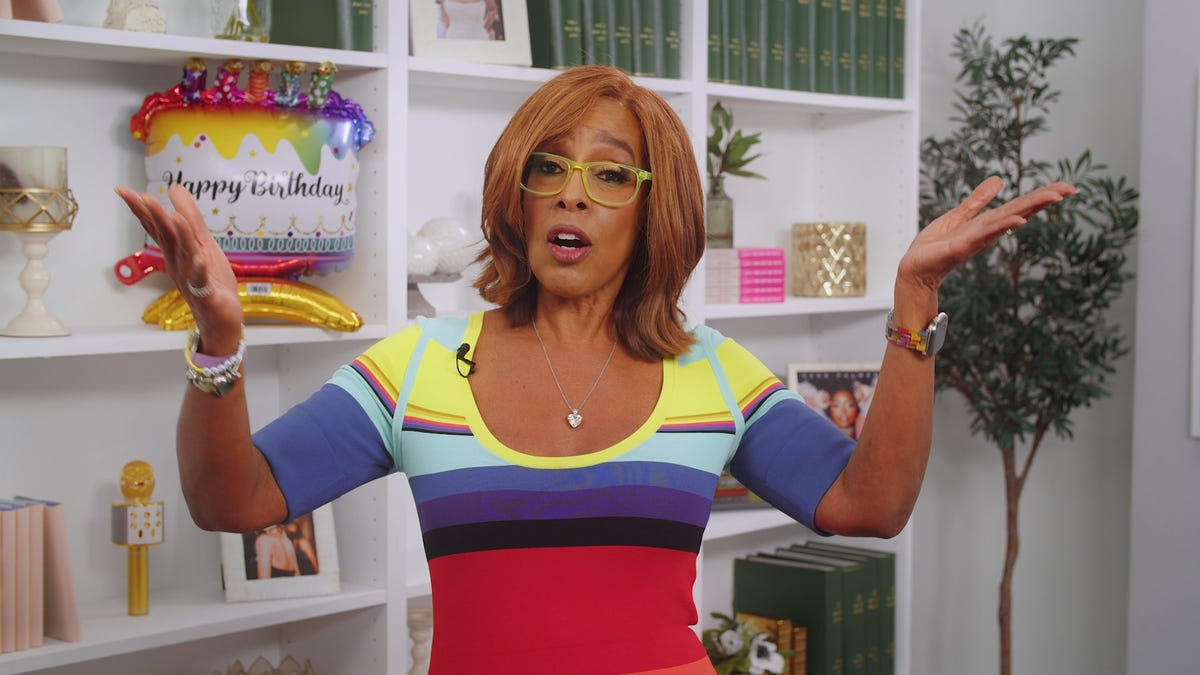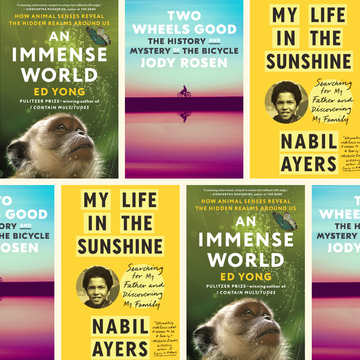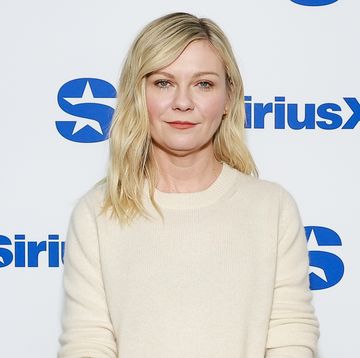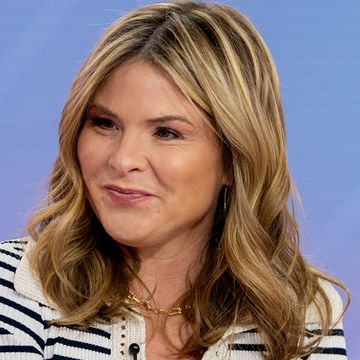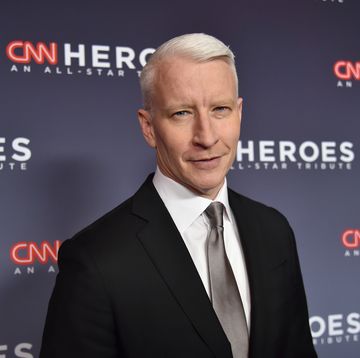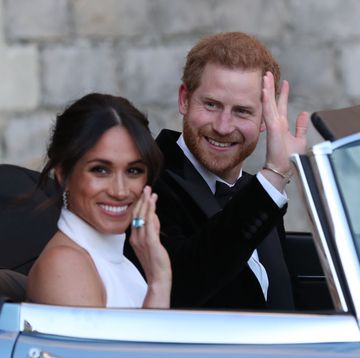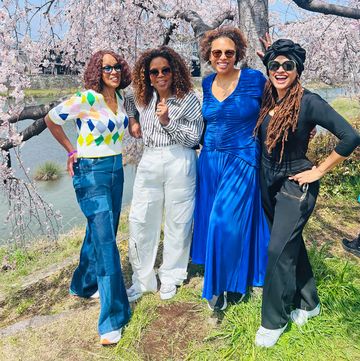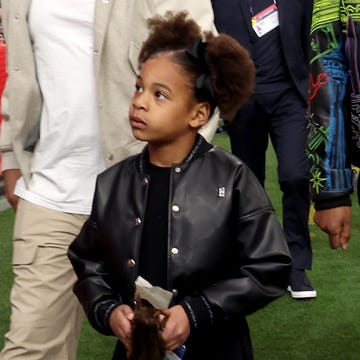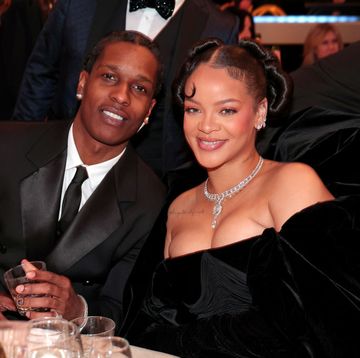Over the past week, mourners have paid tribute to Congressman and Civil Rights leader John Lewis, who passed away earlier this month at the age of 80. His casket has traveled from Alabama to Washington D.C. to Georgia for a series of memorial services, and today, he'll be laid to rest in Atlanta, following an emotional private funeral at Ebenezer Baptist Church, which included eulogies by three living presidents: Barack Obama, Bill Clinton, and George W. Bush.
Above, a full livestream of the service, and below, transcripts of their remarks about the "Boy from Troy" who went on to become an American icon.
Barack Obama
James wrote to the believers: Consider it pure joy, my brothers and sisters, whenever you face trials of many kinds because you know that the testing of your faith produces perseverance. But perseverance finish its work so that you may be mature and complete, lacking nothing. It is a great honor to be back in Ebenezer Baptist Church in the pulpit of its greatest pastor, Dr. Martin Luther King, Jr., to pay my respects to perhaps his finest disciple, an American whose faith was tested again and again to produce a man of pure joy and unbreakable perseverance, John Robert Lewis.
To those who have spoken, to Presidents Bush and Clinton, Madame Speaker, Reverend
Warnock, Reverend King, John's family, friends, his beloved staff, Mayor Bottoms, I've come here today because I like so many Americans owe a great debt to John Lewis and his forceable vision of freedom.
Now this country is a constant work in progress. We're born with instructions to form a more perfect union, explicit in those words is the idea that we're imperfect, that what gives each new generation purpose is to take up the unfinished work of the last, and carry it further than any might have thought possible.
John Lewis, first of the Freedom Riders, head of the Student Nonviolent Coordinating Committee, youngest speaker at the March on Washington, leader of the march from Selma to Montgomery, member of congress representing the people of this state and this district for 33 years, mentor to young people, including me at the time. Until his final day on this earth, he not only embraced that responsibility, he made it his life's work, which isn't bad for a boy from Troy.
John was born into modest means. That means he was poor. In the heart of the Jim Crow South, to parents, who picked somebody else's cotton. Apparently he didn't take to farm work. On days when he was supposed to help his brothers and sisters with their labor, he'd hide under the porch and make a break for the school bus when it showed up.
His mother Willie Mae nurtured that curiosity in this shy serious child. Once you learn something, she told her son, once you get something inside your head, no one can take it away from you. As a boy John listened through the door after bedtime as his father's friends complained about the Klan.
One Sunday as a teenager he heard Dr. King preach on the radio. As a college student in Tennessee he signed up for Jim Lawson's workshops on the tactic of non-violent civil disobedience. John Lewis was getting something inside his head, an idea he couldn't shake took hold of him: that non-violent resistance, and civil disobedience were the means to change laws but also change hearts and change minds and change nations, change the world. So he helped organize the Nashville campaign in 1960. He and other young men and women sat at a segregated lunch counter—well dressed, straight backed, refusing the let a milkshake poured on their heads, or a cigarette extinguished on their backs, or a foot aimed at their ribs, refused to let that dent their dignity and their sense of purpose, and after a few months, the Nashville campaign achieved the first successful desegregation of public facilities in any major city in the South. John got a taste of jail for the first, second, third, well, several times. But he also got a taste of victory, and it consumed him with righteous purpose, and he took the battle deeper into the South
That same year just weeks after the Supreme Court ruled that segregation of interstate bus facilities was unconstitutional, John and Bernard Lafayette bought two tickets, climbed aboard a Greyhound and sat up front, and refused to move. This was months before the first official freedom rides. He was doing a test. Trip was unsanctioned, few knew what they were up to and at every stop through the night, apparently the angry driver stormed out of the bus and into the station and John and Bernard had no idea what he might come back with or who he might come back with.
Nobody was there to protect them. There were no camera crews to record events. Sometimes we read about this and we kind of take it for granted, or at least we act as if it was inevitable. Imagine the courage of two people Malia's age, younger than my oldest daughter, on their own, to challenge an entire infrastructure of oppression.
John was only 20 years old, but he pushed all 20 of those years to the center of the table, betting everything, all of it, that his example could challenge centuries of convention and generations of brutal violence and countless daily indignities suffered by African Americans. Like John the Baptist, preparing the way. Like those Old Testament profits speaking truth to Kings, John Lewis did not hesitate.
And he kept on getting on board buses, and sitting at lunch counters, got his mugshot taken again and again, marched again and again on a mission to change America. Spoke to the quarter of a million people at the March on Washington when he was just 23, helped organize the Freedom Summer in Mississippi when he was just 24. At the ripe old age of 25, John was asked to lead the march from Selma to Montgomery. He was warned that Governor Wallace had ordered troopers to use violence but he and Hosea Williams led them across that bridge anyway.
And we've all seen the film and the footage and the photographs. President Clinton mentioned the trench coat, the knapsack, a book to read, the apple to eat, the toothbrush. Apparently, jails weren't big on such creature comforts. And you look at those pictures, and John looks so young, and he's small in stature, looking every bit that shy serious child that his mother had raised, and yet, he's full of purpose.
God's put perseverance in him. And we know what happened to the marchers that day. Their bones were cracked by billy clubs; their eyes and lungs choked with tear gas; they knelt to pray which made their heads easier targets. And John was struck in the skull and he thought he was going to die, surrounded by the sight of young Americans gagging and bleeding and trampled. Victims in their own country of state-sponsored violence. And the thing is, I imagine initially that day, the troopers thought they'd won the battle. You can imagine the conversations they had afterwards, saying 'Yeah, we showed them.' They figured they'd turned the protestors back over the bridge. That they'd kept, preserved a system that denied the basic humanity of their fellow citizens. Except this time there were some cameras there.
This time the world saw what happened, bore witness to Black Americans, who were asking for nothing more than to be treated like other Americans. Who were not asking for special treatment, just equal treatment, promised to them a century before, and almost another century before that.
And when John woke up, and checked himself out of the hospital, he would make sure the world saw a movement that was, in the words of scripture, hard pressed on every side but not crushed, perplexed, but not in despair, persecuted but not abandoned, struck down but not destroyed.
They returned to Brown's Chapel, a battered prophet, bandages around his head, and he said, more marchers will come now. And the people came. And the troopers parted, and the marchers reached Montgomery. Their words reached the White House, and Lyndon Johnson, son of the south said 'We shall overcome.' And Voting Rights Act was signed into law.
The life of John Lewis was in so many ways exceptional. It vindicated the faith in our founding, redeemed that faith. That most American of ideas, the idea that any of us ordinary people without rank or wealth or title or fame, can somehow point out the imperfections of this nation and challenge the status quo and decide that it is in our power to remake this country that we love until it more closely aligns with our highest ideals. What a radical idea. What a revolutionary notion. This idea that any of us, ordinary people.
A young kid from Troy, can stand up to the powers and principalities and say no this isn't right. This isn't true. This isn't just, we can do better. On the battlefield of justice, Americans like John, Americans like Joseph Lowery and C.T. Vivian two other patriots that we lost this year. They liberated all of us, that many Americans came to take for granted.
America was built by people like them. America was built by John Lewises. He as much as anyone in our history brought this country a little bit closer to our highest ideals. And someday when we do finish that long journey toward freedom. When we do form a more perfect union whether it's years from now or decades, or even if it takes another two centuries, John Lewis will be a founding father of that fuller, fairer, better America. And yet as exceptional as John was, here's the thing, John never believed that what he did was any more than any citizen of this country can do. I mentioned in the statement the day John passed, the thing about John was just how gentle and humble he was.
And despite this storied, remarkable career, he treated everyone with kindness, and respect because it was innate to him: this idea that any of us can do what he did, if we're willing to persevere. He believed that in all of us, there exists the capacity for great courage, a longing to do what's rights. In all of us there's a willingness to love all people, and extend to them their God-given rights to dignity and respect. So many of us lose that sense. It's taught out of us. We start feeling as if in fact that we can't afford to extend kindness or decency to other people. That we're better off if we're above other people and looking down on them.
And so often that's encouraged in our culture but John always saw the best in us, and he never gave up, and never stopped speaking out because he saw the best in us. He believed in us even when we didn't believe in ourselves. And as a Congressman he didn't rest.
He kept getting himself arrested. As an old man, he didn't sit out any fight. Sat in all night long on the floor of the United States Capitol. I know his staff was stressed. But the testing of his faith produced perseverance.
He knew that the marches were not over, that the race is not yet won. That we have not yet reached that blessed destination where we are judged by the contents of our character, he knew from his own life that progress is fragile, that we have to be vigilant against the darker currents of this country's history, of our own history with our whirlpools of violence, and hatred and despair, they can always rise again. Bull Connor may be gone, but today we witness with our own eyes police officers kneeling on the necks of Black Americans.
George Wallace may be gone, but we can witness our federal government sending agents to use tear gas and batons against peaceful demonstrators.
We may no longer have to guess the number of jelly beans in a jar in order to cast a ballot, but even as we sit here, there are those in power who are doing their darndest to discourage people from voting by closing polling locations and targeting minorities and students with restrictive id laws, and attacking our voting rights with surgical precision, even undermining postal service in the run up to an election that is going to be dependent on mail-in ballots so people don't get sick.
I know this is a celebration of John's life. There are some who might say we shouldn't dwell on such things. But that's why I'm talking about it. John Lewis devoted his time on this earth fighting the very attacks on democracy and what's best in America that we're seeing circulate right now.
He knew that every single one of us has a God-given power and that the fate of this democracy depends on how we use it. Democracy isn't automatic. It has to be nurtured; it has to be tended to; we have to work at it; it's hard.
And so he knew that it depends on whether we summon a measure of John's moral courage to question what's right and what's wrong and call things as they are. He said that as long as he had a breath in his body, he would do everything he could to preserve this democracy. And as long as we have breath in our bodies we have to continue his cause.
If we want our children to grow up in a democracy, not just with elections, but a true democracy, a representative democracy, in a big-hearted tolerant vibrant inclusive America of perpetual self-creation, then we're going to have to be more like John.
We're don't have to do all the things he had to do, because he did them for us. But we gotta do something. AS the Lord instructed Paul do not be afraid, go on speaketh. Do not be silent, for I am with you, and no one will attack you to harm you for I have many in this city who are my people. Everybody's gotta come out and vote.
We got all those people in the city, but they can't do nothing. Like John we've gotta keep getting into that good trouble. He knew that non-violent protest is patriotic, a way to raise public awareness and put a spotlight on injustice and make the powers that be uncomfortable.
Like John, we don't have to choose between protest and politics, it's not an either or situation, it's a both and situation. We have to engage in protest where that's effective, but we also have to translate our passion and our causes into laws, institutional practices.
That's why John ran for congress 34 years ago. Like John, we have to fight harder for the most powerful tools that we have, which is the right to vote. The Voting Rights Act is one of the crowning achievements of our democracy. It's why John crossed that bridge, it's why he spilled his blood.
It was the result of Democratic and Republican efforts. President Bush, who spoke here earlier, and his father signed its renewal when they were in office. President Clinton didn't have to because it was the law when he arrived, so instead he made a law to make it easier for people to register to vote. But once the Supreme Court weakened the Voting Rights Act, some state legislators unleashed a flood of laws designed specifically to make voting harder, especially, by the way, state legislators where there's a lot of minority turnout and population growth. That's not necessarily a mystery or an accident. It was an attack on what John fought for; it was an attack on our democratic freedoms, and we should treat it as such. If politicians want to honor John, and I'm so grateful for the legacy and work of all the congressional leaders who are here. But there's a better way than a statement calling him a hero. You want to honor John? Let's honor him by revitalizing the law that he was willing to die for.
And by the way, naming it the John Lewis Voting Rights Act, that is a fine tribute, but John wouldn't want us to stop there, just trying to get back where we already were. Once we pass the John Lewis Voting Rights Act, we should keep marching to make it even better, by making sure every American is automatically registered to vote, including former inmates who've earned their second chance, by adding polling places, and expanding early voting and making election day a national holiday.
So if you are somebody who is working in a factory or you are a single mom who has to go to her job and doesn't get time off, you can still cast your ballot. By guaranteeing that every American citizen has equal representation in our government including the American citizens who live in Washington D.C. and Puerto Rico, they're Americans. By ending some of the partisan gerrymandering, so that all voters have the power to choose their politicians and not the other way around. And if all this takes eliminating the filibuster, another Jim Crow relic, in order to secure the God-given rights of every American, then that's what we should do.
Even if we do all this, even if every bogus voter suppression law is struck off the books today. We've got to be honest with ourselves that too many of us choose not to exercise the franchise. Too many of our citizens believe their vote won't make the difference, or they buy in to the cynicism that by the way is the central strategy of voter suppression, to make you discouraged, to stop believing in your own power. So we're also going to remember what John said: 'If you don't do everything you can do to change things then they will remain the same. You only pass this way once, you have to give it all you have.'
As long as young people are protesting in the streets hoping real change will take hold, I'm hopeful but we can't casually abandon them at the ballot box, not when few elections have been so urgent, on so many levels as this one, we can't treat voting as an errand to run if we have some time. We have to treat it as the most important action we can take on behalf of democracy. Like John we have to give it all we have.
I was proud that John Lewis was a friend of mine. I met him when I was in law school. He came to speak and I went up and I said Mr. Lewis, 'You are one of my heroes. What inspired me more than anything as a young man was to see what you and Lawson, Bob, Moses, and Diane Nash, and others did." And he got that kind of aw shucks, 'Thank you very much.' Next time I saw him, I had been elected to the United States Senate and I told him 'John I'm here because of you.' And on Inauguration Day 2009, he was one of the first people I greeted and hugged on the stand, and I told him, 'This is your day too.'
He was a good and kind and gentle man, and he believed in us even when we don't believe in ourselves. And it's fitting that the last time John and I was on Zoom. And I'm pretty sure neither he nor I set up the Zoom call because we didn't know how to work it. It was a virtual town hall with a group of young activists who had been helping to lead this summer's demonstrations in the wake of George Floyd's death.
And afterward, I spoke to John privately, and he could not have been prouder to see this new generation of activists standing up for freedom and equality, a new generation that was intent on voting and protecting the right to vote. In some cases a new generation running for political office. And I told him, 'All those young people John, of every race and every religion, from every background and gender and sexual orientation, John those are your children. They learned from your example, even if they didn't always know it. '
They had understood through him what American citizenship requires, even if they had only heard about his courage through the history books. By the thousands, faceless anonymous, relentless young people, black and white have taken our whole nation back to those great wells of democracy, which were dug deep by the founding fathers in the formulation of the Constitution and the Declaration of Independence.
Dr. King said that in the 1960s, and it came true again this summer. We see it outside our windows in big cities, and rural towns. In men and women, young and old, straight Americans, LGBTQ Americans, Blacks who long for equal treatment and whites who can no longer accept freedom for themselves while witnessing the subjugation of their fellow Americans. We see it in everybody doing the hard work of overcoming complacency of overcoming our own fears, our own prejudices, our own hatreds.
We see it in people trying to be better truer versions of ourselves. And that's what John Lewis teaches us. That's where real courage comes from not from turning on each other but by turning towards one another, not by sewing hatred and division, but by spreading love and truth. Not by avoiding our responsibilities to create a better American and a better world, but by embracing those responsibilities, the joy and perseverance and discovering that in our beloved community, we do not walk alone. What a gift John Lewis was. We are all so lucky to have had him walk with us for a while and show us the way. God bless you all. God bless America. God bless this gentle soul who pulled it closer to its promise. Thank you very much.
George W. Bush
Good morning. Distinguished guests, John-Miles, Lewis’ family and friends, Lord I thank you for inviting us for being here today.
John’s story began on a tiny farm in Troy, Alabama, a place so small he said you can barely find it on a map. Dr. Warnock talked about the chickens. I did a little research. Every morning, he would rise before the sun to tend to the flock of chickens. He loved those chickens. Already called to be a minister who took care of others, John fed them, and tended to their every need. Even their spiritual ones. Where John baptized them, he married them and he preached to them. When his parents claimed one for family supper, John refused to eat one of his flock. Going hungry was his first act of nonviolent protest. He also noted in later years that his first congregation of chickens listened to him more closely than his colleagues in Congress.
John also thought that the chickens were a little more productive. At least they produced eggs, he said. From Troy to the sit-ins of Nashville, from the Freedom Rides to the March on Washington, from Freedom Summer to Selma, John Lewis always looked outward, not inward. He always thought of others; he always thought of preaching the gospel, in word and in deed, insisting that hate and fear had to be answered with love and hope. John Lewis believed in the Lord, he believed in humanity and he believed in America. He’s been called an American saint, a believer willing to give up everything, even life itself, to bear witness to the truth that drove him all his life. That we could build a world of peace and justice, harmony and dignity and love. And the first crucial step on that journey was the recognition that all people are born in the image of God, and carry a spark of the divine in them.
Laura and I were privileged to see that spark in John up close. We worked with him to bring the National Museum of African American History and Culture to the Washington Mall. He was instrumental in the Emmett Till Unsolved Civil Rights Crimes Act, which I signed to seek resolution in cases where justice had been too long denied. And we will never forget joining him in Selma, Alabama for the 50th anniversary of his march across the Edmund Pettus Bridge, where we got to watch President Barack Obama thank John as one of his heroes.
There’s a story in the Old Scriptures that meant a lot to John. In the Hebrew Bible, the Lord is looking for a prophet. “Whom shall I send,” God wonders, and who will go for us?
Isaiah answers: Here am I. Send me. John Lewis heard that call a long time ago in segregated Alabama and he took up the work of the Lord through all his days. His lesson for us is that we must all keep ourselves open to hearing the call of love. The call of service. And the call to sacrifice for others. Listen, John and I had our disagreements of course — but in the America John Lewis fought for, and the America I believe in, differences of opinion are inevitable elements and evidence of democracy in action.
We the people, including Congressman and Presidents, can have differing views on how to perfect our union while sharing the conviction that our nation, however flawed, is a good and noble one. We live in a better and nobler country today because of John Lewis and his abiding faith in the power of God, the power of democracy and in the power of love to lift us all to a higher ground. The story that began in Troy isn’t ending here, nor is the work. John Lewis lives forever in his Father’s house, and he will live forever in the hearts of Americans, who act justly, love mercy and walk humbly with their God. May the flights of angels see John Lewis to his rest, and may God bless the country he loved.
Bill Clinton
Thank you very much. First, I thank John-Miles and the Lewis family and John’s incomparable staff for a chance to say a few words about a man I loved for a long time. I am grateful, Pastor Warnock, to say it in Ebenezer, a holy place sanctified by both the faith and the works of those who have worshipped here. I thank my friend, Reverend Bernice King, who stood by my side and gave a fascinating sermon in one of the most challenging periods of my life.
I thank President and Mrs. Bush, President Obama, Speaker Pelosi, thank you and Rep. Hoyer and Rep. Clyburn, who I really thank for with a stroke of a hand, ending an intrafamily fight within our party, proving that peace is needed by everyone. Madam Mayor, thank you. You have faced more than a fair share of challenges in these past few months, and you have faced them with candor and dignity and honor and I thank you for your leadership.
I must say, for a fella who got his start speaking to chickens, John’s gotten a pretty finely organized and orchestrated and deeply deserved send-off this last week. His homegoing has been something to behold. I think it’s important that all of us who loved him remember that he was, after all, a human being, a man like all other humans, born with strengths that he made the most of when many don’t, born with weaknesses that he worked hard to beat down when many can’t, but still a person. It made him more interesting, and it made him, in my mind, even greater.
Twenty years ago, we celebrated the 35th anniversary of the Selma March and we walked together along with Coretta and many others from the movement who are no longer with us. We’re grateful for Annie Young and Rev. Jackson and Diane Nash and many others who survive. But on that day, I got him to replay for me a story he told me when we first met back in the 1970s and I said...I was just an aspiring, whatever, Southern politician, and hadn’t been elected governor and he was already a legend.
So I said, John, what’s the closest you’ve ever actually came to getting killed doing this. And he said, well, once we were at a demonstration and I got knocked down on the ground and people were getting beat up pretty bad, and there was a man holding up a long, heavy piece of pipe and he lifted it and was clearly gonna bring it right down to my skull. And at the very last second, I turned my neck away and the crowd pushed him a little bit and a couple seconds later, I couldn't believe I was still alive. I think it’s important to remember that, first because he's a quick thinker, and secondly because he was here on a mission that was bigger than personal ambition. Things like that sometimes just happen, but usually they don’t.
I think three things happened to John Lewis long before we met and became friends that made him who he was. First, the famous story of John at 4 with his cousins and siblings, holding his aunt’s hand, more than a dozen of them, running around in a little old wooden house as the wind threatened to blow the house off its moorings, going to the place where the house was rising and all the tiny bodies trying to weigh it down. I think he learned something about the power of working together, something that was more powerful than any instruction.
Second, nearly twenty years later, when he was 23, the youngest speaker and the last speaker at the March on Washington, when he gave a great speech urging people to take to the streets across the South to see the chance to finally end racism. And he listened to people that he knew had the same goals say, well, we have to be careful how we say this because we’re trying to get converts, not more adversaries. Just three years later, he lost the leadership of SNCC to Stokely Carmichael because it was a pretty good job for a guy that young and come from Troy, Alabama. It must have been painful to lose, but he showed as a young man there’s some things that you just cannot do to hang on to a position because if you do, then, you won’t be who you are anymore. And I say there were two or three years there, where the movement went a little too far towards Stokely, but in the end, John Lewis prevailed. We are here today because he had the kind of character he showed when he lost an election.
Then, there was Bloody Sunday, he figured he might get arrested. And this is really important for all the rhapsodic things we believe about John Lewis, he had a really good mind and he was always trying to figure out how I can make the most out of every single moment. So he’s getting ready to march from Selma to Montgomery, he wants to get across the bridge. What do we remember? He cut quite a strange figure: He had a trenchcoat and a backpack. Now, young people probably think that’s no big deal but there weren’t that many backpacks back then. And you never saw anybody in a trenchcoat looking halfway dressed up with a backpack. But John put an apple, an orange, a toothbrush, toothpaste to take care of his body ‘cause he figured he would get arrested. And two books, one by Richard Hofstadter on America’s political tradition to feed his mind, and one, the autobiography of Thomas Merton, a Roman Catholic Trappist monk who was the son of itinerant artists making an astonishing personal transformation. What’s a young guy who’s about to get his brains beat out and planning on going to prison doing taking that? I think he figured that if Thomas Merton could find his way and keep his faith and believe in the future, he, John Lewis could too.
So we honor our friend for his faith and for living his faith, which the Scripture said is the substance of things hoped for, the evidence of things unseen. John Lewis was a walking rebuke to people who thought, 'well, we ain’t there yet, we’ve been working a long time, isn’t it time to bag it?' He kept moving. He hoped for and imagined and lived and worked and moved for his beloved community. He took a savage beating on more than one day. And he lost that backpack on Bloody Sunday. Nobody knows what happened to it. Maybe someone someday will be stricken with conscience and give some of it back. But what it represented never disappeared from John Lewis’ spirit.
We honor that memory today because he learned to walk with the wind, to march with others to save a tiny house, because as a young man, he challenged others to join him with love and dignity to hold America’s house down and open the doors of America to all its people. We honor him because on Selma, on the third attempt, John and his comrades showed that sometimes you have to walk into the wind along with it as he crossed the bridge and marched into Montgomery. But no matter what, John always kept walking to reach the beloved community. He got into a lot of good trouble along the way, but let’s not forget, he developed an absolutely uncanny ability to heal troubled waters. When he could have been angry and determined to cancel his adversaries, he tried to get converts instead.
He thought the open hand was better than the clenched fist. He lived by the faith and promise of St. Paul: Let us not grow weary in doing good, for in due season we will reap if we do not lose heart. He never lost heart. He fought the good fight, he kept the faith, but we got our last letter today on the pages of the New York Times. Keep moving. It is so fitting on the day of his service, he leaves us our marching orders: Keep moving.
Twenty years ago, when I came here after the Selma march to a big dinner honoring John and Lillian and John-Miles, you had a big Afro and it was really pretty, and your daddy was giving you grief about it, and I said to John, 'let’s not get old too soon. I mean, if I had hair like that, I’d have it down to my shoulders.'
But on that night, I was almost out of time and to be President, people were asking me, 'well, if you could do one more thing what it would be?' or 'what do you wish you had done that you didn’t?' and all that kind of stuff. Someone asked me that night, because I had many friends in Atlanta, and I said, if I could do just one thing, if God came to me tonight and said, 'OK your time is up, you gotta go home, and I’m not a genie, I’m not giving you three wishes. One thing, what would it be?'
I said, "I would infect every American with whatever it was that John Lewis got as a 4-year-old kid and took through a lifetime to keep moving and to keep moving in the right direction and keep bringing other people to move and to do it without hatred in his heart, with a song and to be able to sing and dance." As John’s brother Freddie said in Troy, keep moving to the ballot box even if it’s a mailbox, and keep moving to the beloved community.
John Lewis was many things, but he was a man, a friend and sunshine in the storm, a friend who would walk the stony road that he asked you to walk, that would brave the chastening rods he asked you to be whipped by, always keeping his eyes on the prize, always believing none of us would be free until all of us are equal. I just loved him. I always will. And I’m so grateful that he stayed true to form. He’s gone up yonder and left us with marching orders. I suggest since he’s close enough to God to keep his eye on the sparrow and on us, we salute, suit up and march on.

As the digital director for Town & Country, Caroline Hallemann covers culture, entertainment, and a range of other subjects
